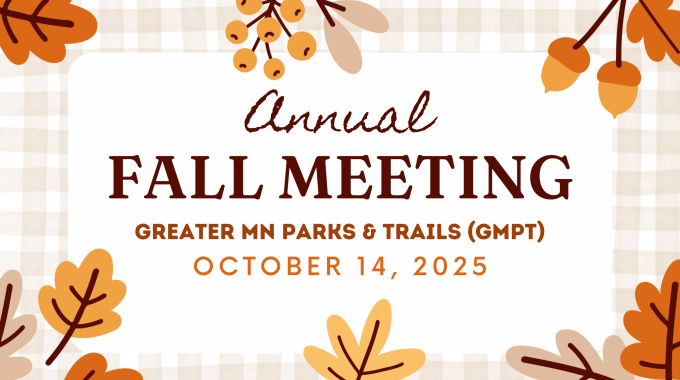Below is a message from GMPT Chair Gina Hugo. You can reach her at gina.hugo@co.sherburne.mn.us. What…
From the Chair: Oh, the weather outside is… changing
Below is a message from GMPT Chair Gina Hugo. You can reach her at gina.hugo@co.sherburne.mn.us.

The weather is something we tend to always talk about with people. It is something we can all relate to since we are all in it together and get to enjoy or endure whatever happens. This summer has certainly been characterized by severe weather in Minnesota and throughout the nation. Wildfires, tornadoes, heavy rain, flooding, and extreme heat have impacted communities statewide that will be recovering for years in terms of natural resource restoration, infrastructure, and economy.
A late July meteorology report included interesting statistics. That week, Wednesday night got really cold! The last time we had a low of 52 degrees near the Twin Cities was in 2016. This instance marked only the third time it has reached this low temperature at this time of year since the year 2000! In contrast, during the first half of the temperature records for the Twin Cities, July temperatures reached 52 degrees or less 80 times! It is now nine times less likely to get that cool in July.
One can travel a great many rabbit holes when diving into the statistics of weather trends since the first records were collected. The big takeaways that strike me are the two most confidently projected changes in the next decade for Minnesota1. The first is the continued loss of cold extremes and dramatic warming of the coldest conditions. This dramatically impacts the winter recreation traditions for Minnesota, which all rely heavily on snow and ice. From snowmobiling, skiing, snowshoeing, skating, to ice fishing—outdoor recreation in our world has and will continue to change. How will we adapt our programming and trail management? The second most confidently projected change for the Land of 10,000 Lakes is a continued increase in frequency and magnitude of extreme rainfall and flash flooding. With the recent devastation in Texas, perhaps this leads us to think about future locations and relocations for campgrounds well away from floodplains?
This month’s column wasn’t intended to be a downer for all of you. These weather events are going to continue to challenge us with opportunities to increase resiliency in our systems. This might mean thinking again and looking at outdoor recreation through a wider lens. This is certainly something we want to support each other in. As you struggle with the impacts of this summer’s weather, what are you learning? What successes have you had that you can share with others? What ideas do you have about adapting programming and infrastructure? Last question, would this be a forum series that you would like to see? Please send us a note at greatermnparkstrails@gmail.com with any thoughts.

